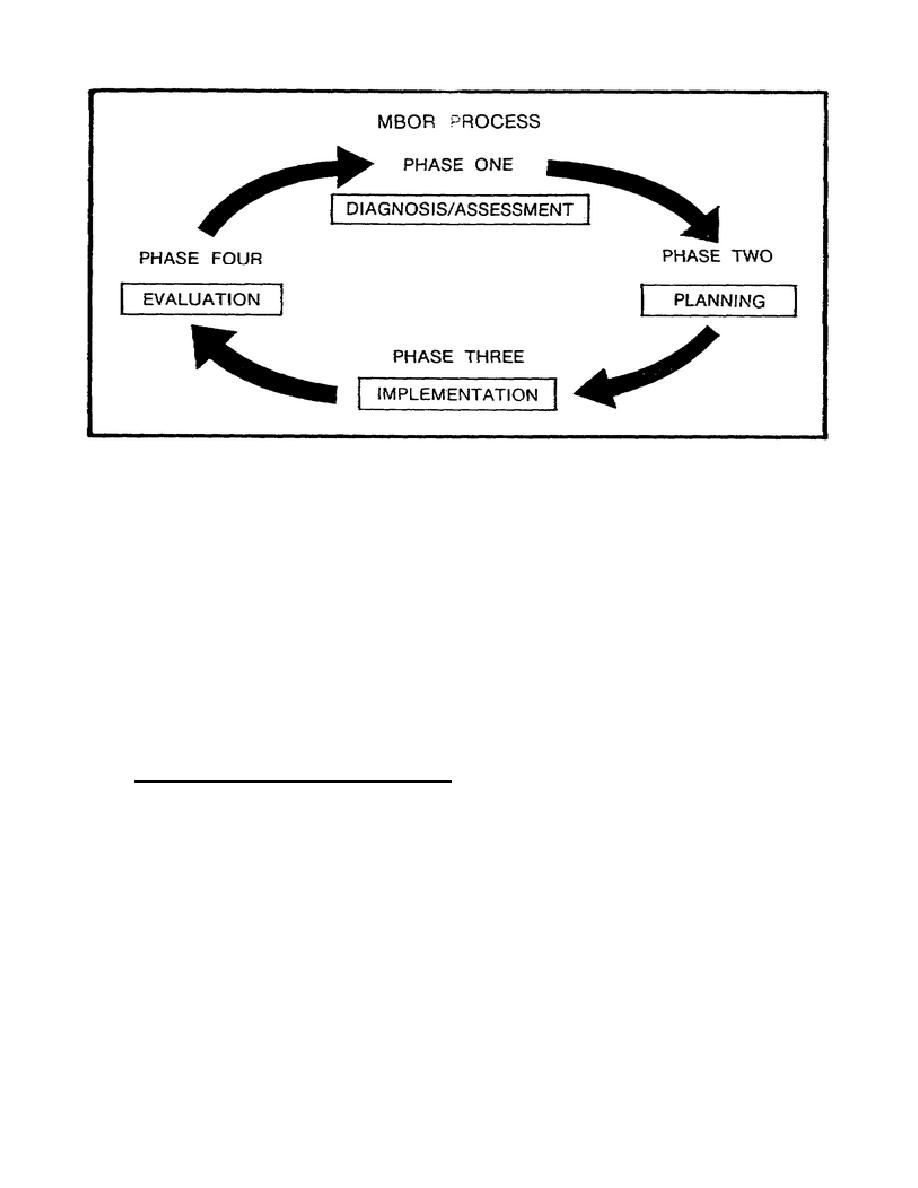
Figure 1-2.
The Four Phases of the MBOR Process.
In accomplishing your planning, you must remain flexible and ready to act
quickly if the situation changes.
You must fully understand your
commander's instructions and be able to adapt to situations that change
rapidly. This four stage process will not give you a ready made solution,
but rather will give you a structured process in which to evaluate a
situation and arrive at a workable solution.
The process described below will require time to complete.
If time were
unlimited, you could accomplish each phase in great detail, and have a
perfect program.
However, few situations seldom allow the luxury of
unlimited time. As time is reduced, you must increasingly depend upon your
experience/training, previous reports, SOPs, and assistance from members of
the UMT.
Regardless of time, cover all the phases even if only in
abbreviated form to be sure you have considered all the facts.
5.
Phase One:
Diagnosis/Assessment.
The diagnosis and assessment phase of the MBOR process, is when you
determine organizational needs and constraints. You determine the needs of
the unit and any factors in the unit that would limit ministry (for example,
special training requirements or a lack of logistical or facility support).
There are many sources of information which you can use to conduct the needs
assessment. Some are:
The
chain of command.
-
Commanding officer.
-
Battalion staff.
-
Noncommissioned officers.
Other chaplains and chaplain assistants.



 Previous Page
Previous Page
